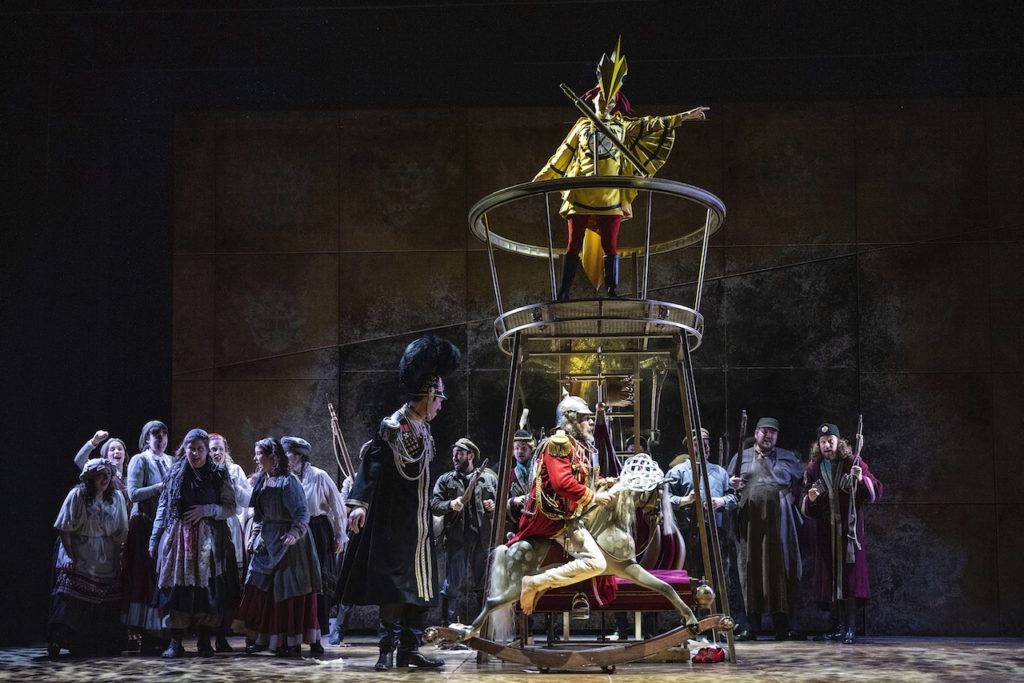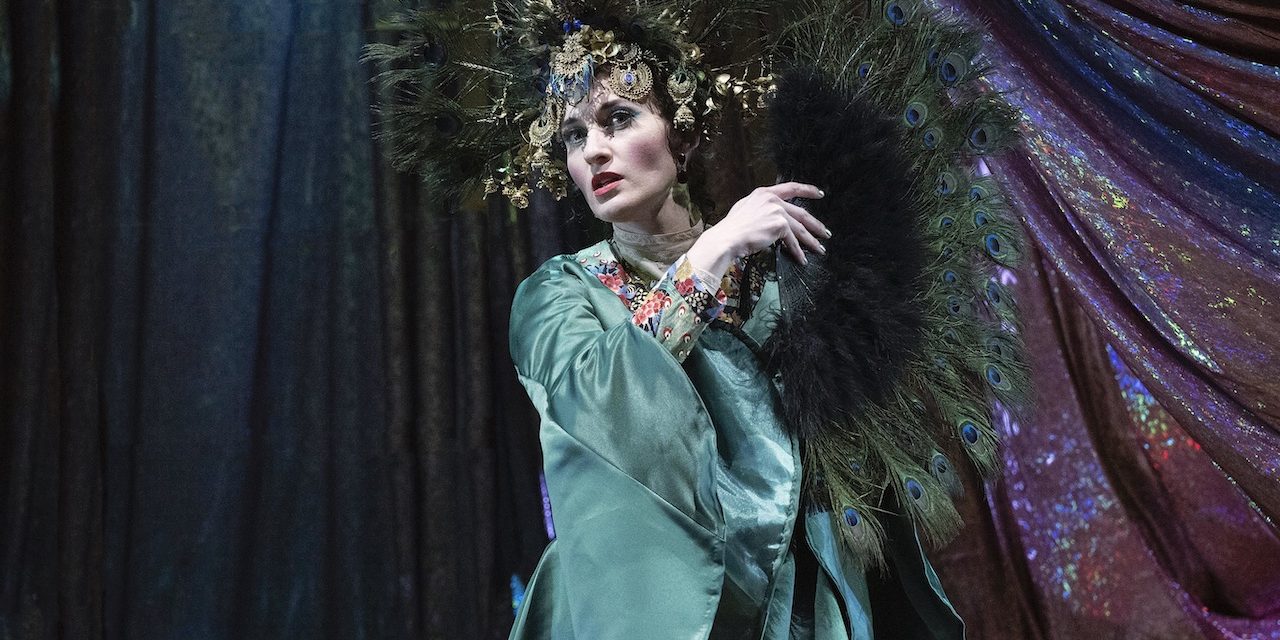
30th May
This couldn’t be anything other than an openly satirical play in which an incompetent king and his equally incompetent sons manage to lose a war despite the dire supernatural warnings from a fabulous creature in the shape of the eponymous Golden Cockerel, who is a gift from the Astrologer.
The story I found to be turbid and the various elements seemed to bear little relationship to each other and in this it seemed the director, James Conway, had gone for breadth rather than clarity with too much fussy detail detracting from what is in any case a fantastical plot. An infantilized king, surrounded by his teddy bears and with a curious submissive/erotic relationship with his nanny (Amy J Payne) gives unaccountable credence to his gormless sons whom he canvasses for military advice when faced with an existential threat from the army of an approaching enemy. The queen of the approaching army turns out to be a seductress of note and quickly realizes the war can be won without recourse to further battle. She promptly seduces the dim witted Dodon and, for good measure, his chief military advisor, General Polkan (Edward Hawkins). Out of this bizarre mix, Rimsky-Korsakov pointedly does not deliver a fairytale ending and the unworthy king is eventually pecked to death after he fails to honour his debt to the astrologer whom he has petulantly killed.
ETO boasts some fine voices, notably Paula Sides, who as Queen of Shemakha had some of the best music in which to exercise her undoubted talents. Moreover, as a most convincing vamp, having little trouble in seducing the bumbling King Dodon (Grant Doyle) she brought an effortless sensuality to some of the more lush pieces of orchestration. Her major scene on the battlefield has echoes of Scheherezade – whom she pointedly rejects as a comparison – with a mix of exoticism and eroticism. The Cockerel (Alys Mererid Roberts) was clear and suitably dramatic, yet with odd movements which brought to mind the mechanical bird in the Clangers. In some of the choral passages conductor, Gerry Cornelius, shows the talented company off to best effect, skillfully blending the voices with great success.
The epilogue, in the form of an ironic disclaimer given by the Astrologer (Robert Lewis), reinforces the political nature of the piece which was written after the “Bloody Sunday’ massacre of 1905 when troops slaughtered hundreds of protesting peasants outside the Winter Palace.
Despite its fairytale elements it is not perhaps the opera to introduce a first timer to the genre. However admirers of Rimsky-Korsakov, in what turned out to be his last opera, will find in this production much of historical, biographical and musical interest.
★★★☆☆ Graham Wyles 31/05/22
Photo credit: Richard Hubert Smith


